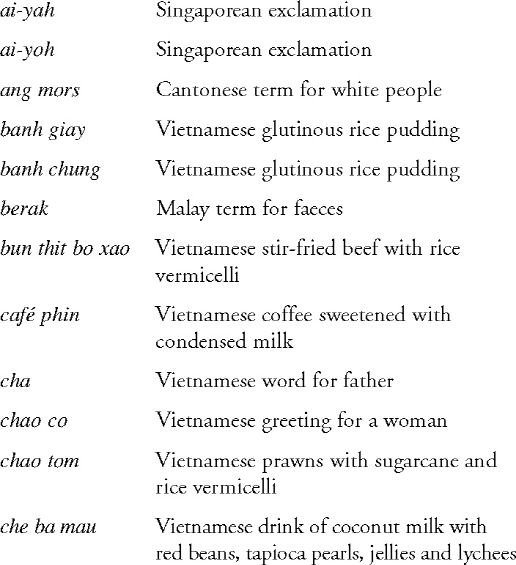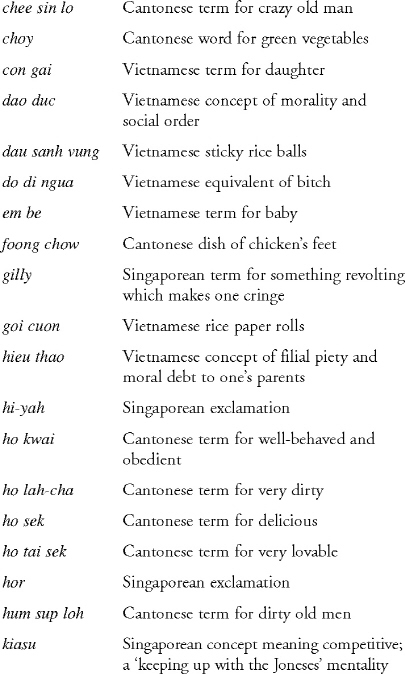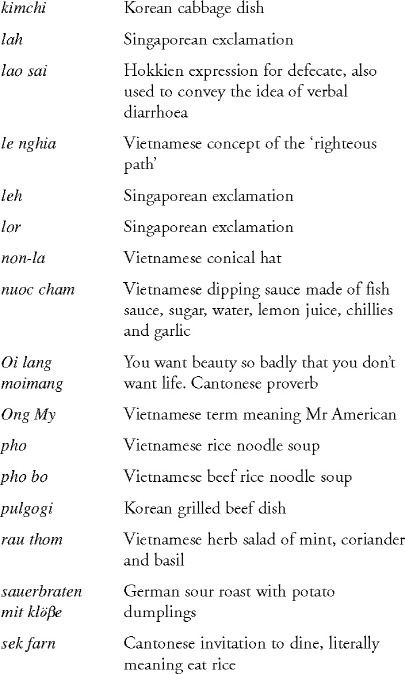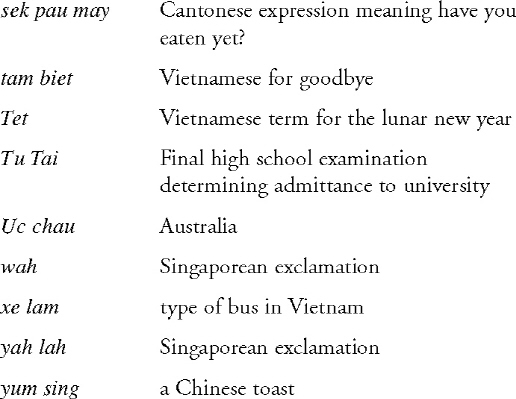Behind the Moon (32 page)
Authors: Hsu-Ming Teo

Excerpts from Nguyen Du’s
The Tale of Kieu
come from Yale University Press’s bilingual edition of
Truyen Kieu
, translated and annotated by Huynh Sanh Thong, New Haven and London, 1983. The André Chénier poem referred to in the text is ‘Quand au mouton bêlant la sombre boucherie ouvre ses cavernes de mort’. The novel contains my translation of the following lines:
Peut-être en de plus heureux temps
J’ai moi-même, à l’aspect des pleurs de l’infortune,
Détourné mes regards distraits;
A mon tour aujourd’hui mon malheur importune.
Vivez, amis; vivez en paix.
I believe 333 beer, famous throughout Vietnam nowadays, used to be 33 beer during the era in which Linh’s story is set. The tale of Cuoi comes from ‘The Buffalo Boy and the Banyan Tree’,
Vietnam Legends and
Folk Tales
, The Gioi Publishers, Hanoi 2002.
My heartfelt thanks to:
Annette Barlow, Christa Munns and Colette Vella of Allen & Unwin for their great patience in waiting for and believing in this novel. I am grateful to Allen & Unwin for giving me the time to develop this story through its various incarnations and for their investment in earlycareer writers.
Jo Jarrah, for her encouragement, insight and thoughtful editorial work.
Yale University Press for their kind permission to reprint Huynh Sanh Thong’s translation of Nguyen Du’s
The Tale of Kieu
.
Mr Van Uu Nguyen and Mr Phung Do, for their generosity and time spent checking the Vietnamese background of this story in earlier drafts—any remaining mistakes in the final draft are entirely my responsibility. Mr Dung Van Ma, of Vietnam Promotions and Public Relations, for kindly putting me into contact with the relevant people. Nguyen Dat Truong, for being an excellent and informative guide in Vietnam.
Hoa Pham, for her insightful reading and comments on an earlier draft. Stuart Ward, for his feedback on certain sections of this novel. Kim Truong, for checking my French and corroborating some Vietnamese details. Annemarie Lopez—a meticulous research assistant—and Guy Perrine, for their friendship and encouragement through various dinners and diversions during the long writing of this novel.
My colleagues in the Department of Modern History, Macquarie University, who have been so supportive of both my academic and literary careers.
My sister, Hsu-Li Teo, who always regales me with bizarre and outrageous anecdotes.
And, as always, my parents, for loving and putting up with me.




